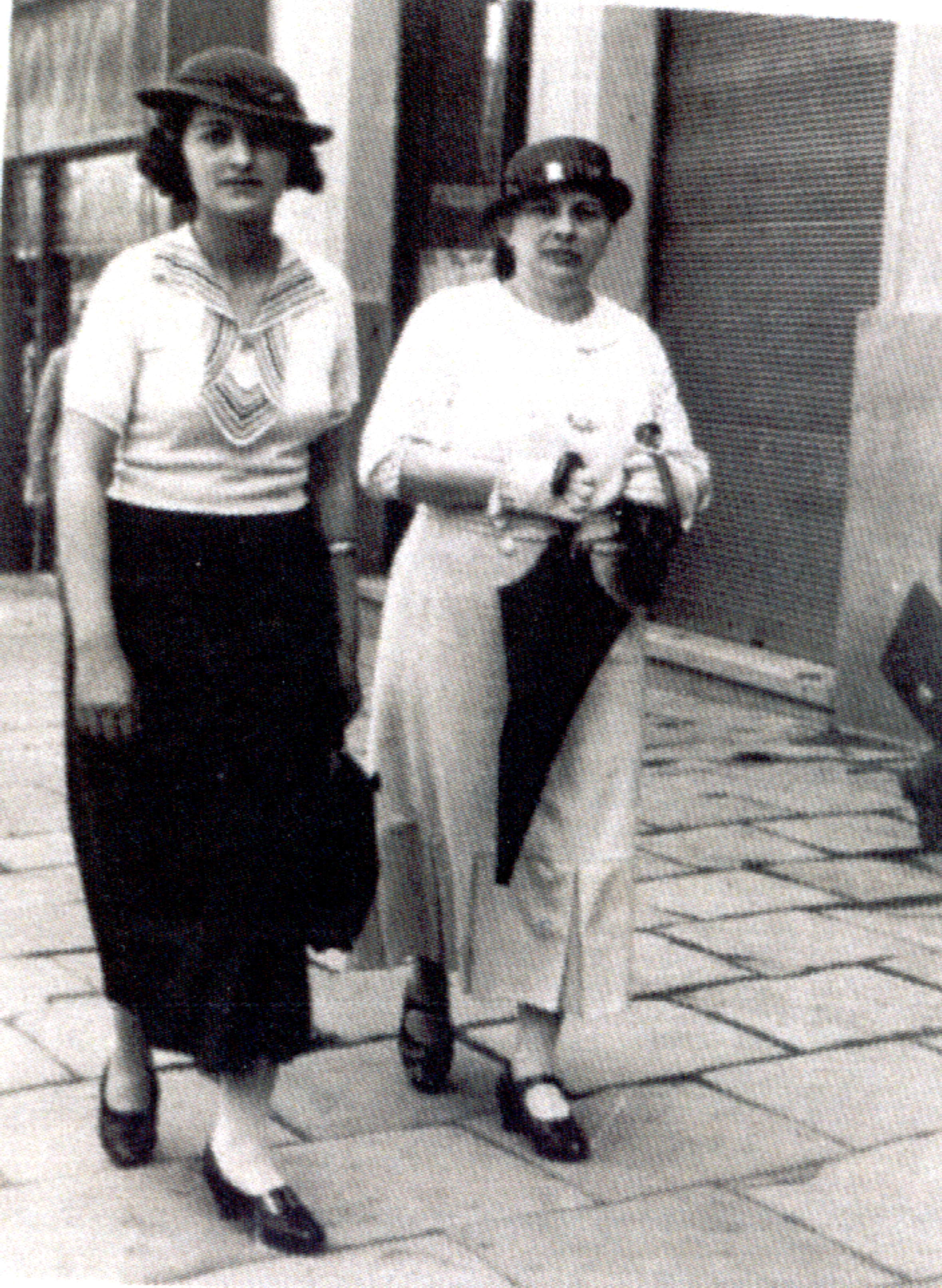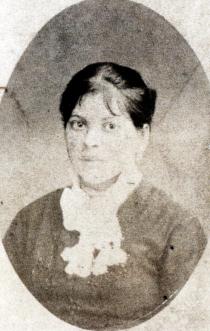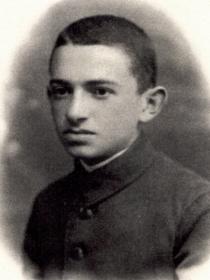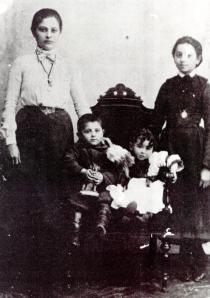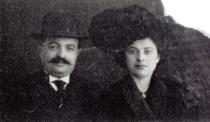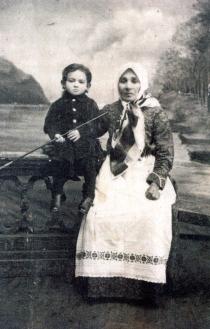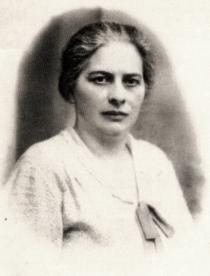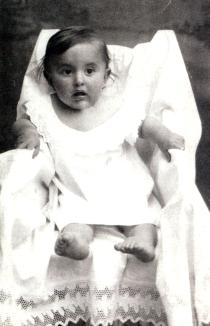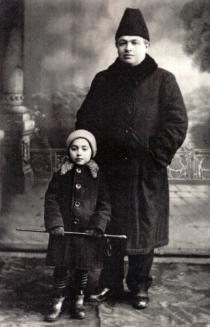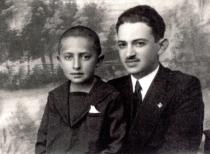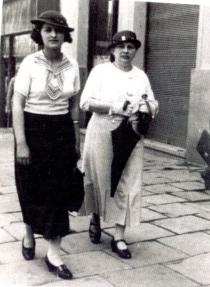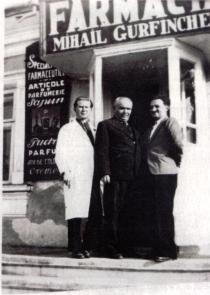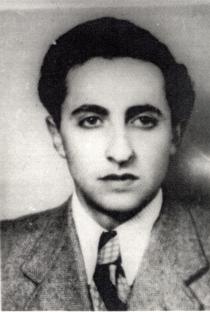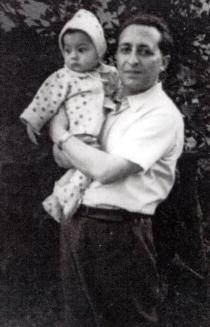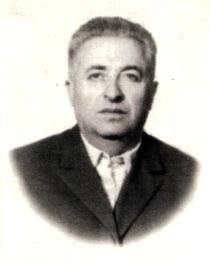My mother Sarah Gurfinkel (on the right) and my sister Polia Gurfinkel photographed by a street photographer in 1932 in Khotin.
My brother and sister went to a lyceum after elementary school. After that they entered the Pharmaceutical Faculty of Bucharest University. They both wanted to follow into my father's footsteps, who was a pharmacist.
In 1933 Hitler came to power in Germany. Romania was a military and political ally of France and England that won in World War I. Under the Versailles Peace Treaty Romania received Bessarabia and Bukovina at that time. We believed that Romania wouldn't enter a treaty with Germany. We were hoping that France and England wouldn't allow Germany to occupy Romania, but it happened otherwise. There were fascist organizations in Romania. Two parties the Iron Guard and the Cuzists, openly declared that they were against Jews. They were saying that Jews were robbing the Romanians and took hold of all key positions in trade and economy. But they weren't in power. The Liberal Party was in power, and it was loyal to Jews. There was no oppression of Jews. Only officers' schools and seminaries didn't admit Jews.
My father died in 1939. My brother became the manager of the pharmacy. The pharmacy generated a good income, and my mother didn't have to worry about how to support the family. We heard on the radio that Bessarabia was to become a part of the USSR a day before the Soviet army units came to town. They entered it in the fall of 1940. My sister was a student in Bucharest, but when she got to know that the Soviet army occupied Bessarabia she came home.
My brother and sister couldn't find a job. They moved to Chernovtsy due to the unstable situation in Khotin. My brother became the manager of the regional veterinary storage facility. My sister found a job as the manager of the railroad pharmacy. My sister and brother spoke fluent Russian and had no problem with their work.
At the beginning of May 1941 my sister and her fiancé, Boris Leikin, came to visit us. Boris was Jewish. He was the secretary of the party organization of the railroad in Chernovtsy. My sister met him at work. She was beautiful and smart, and they took to liking one another and decided to get married. On 1st May 1941 my sister took him to Khotin, and after a few days they registered their marriage.
